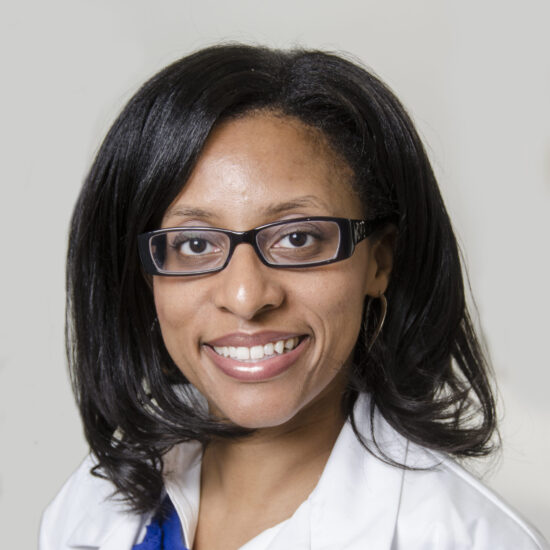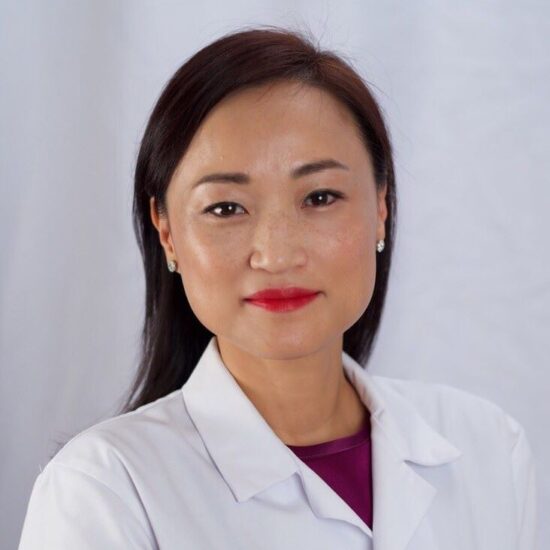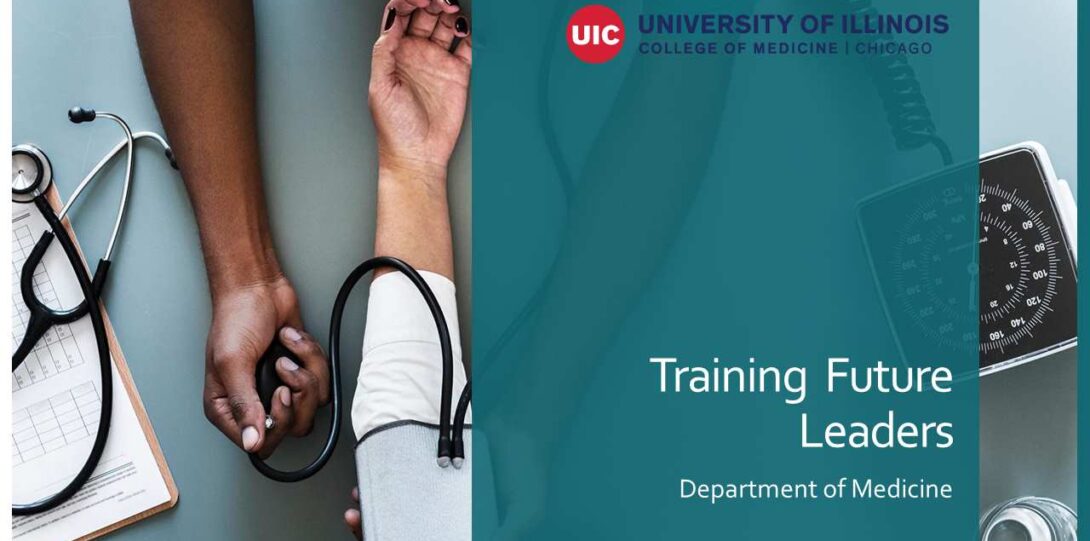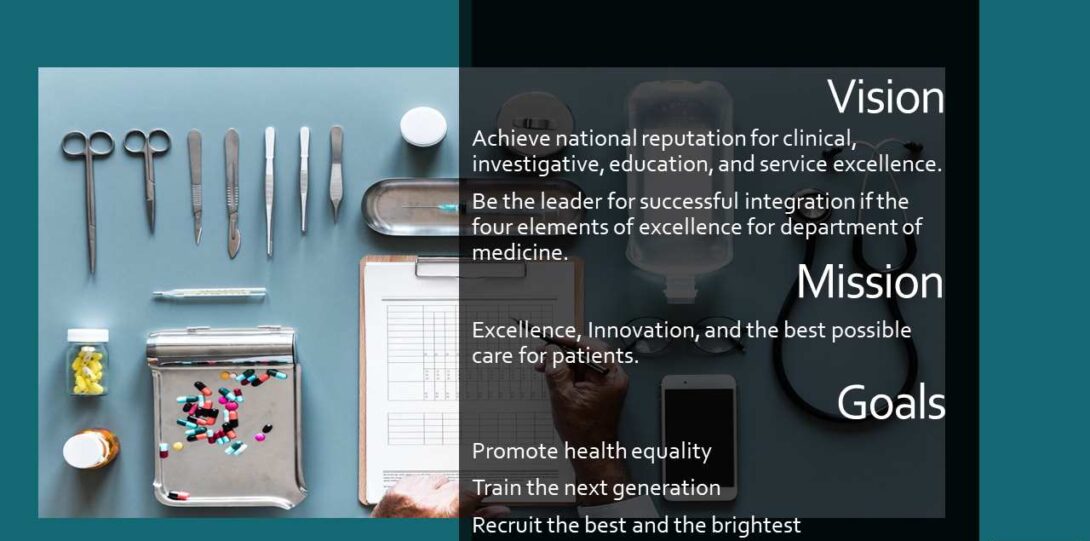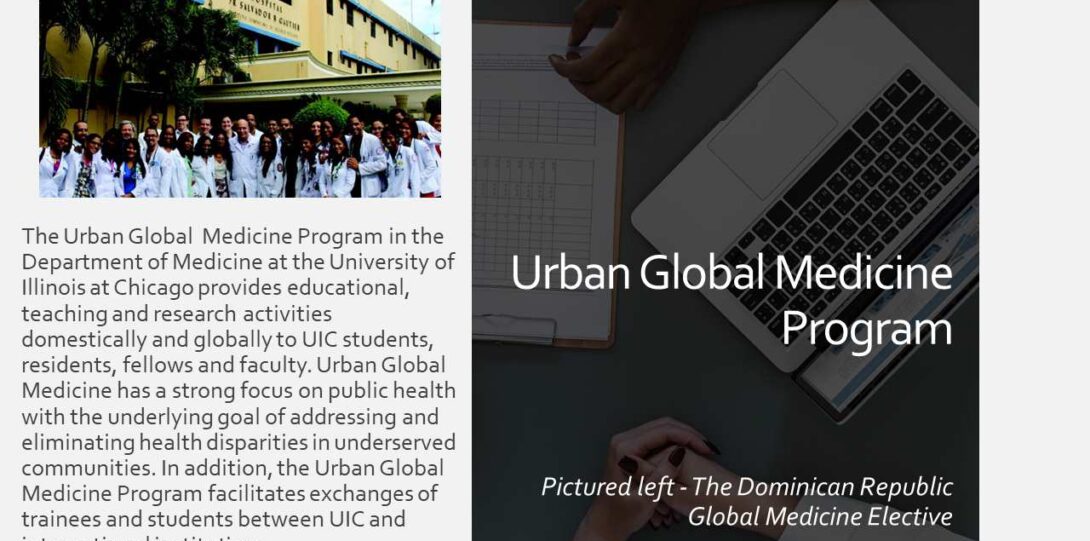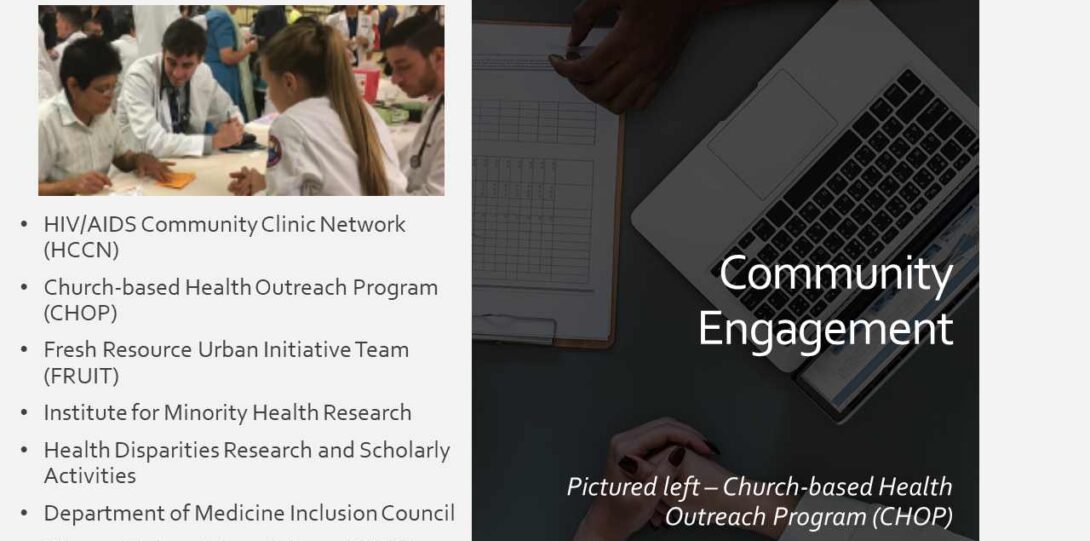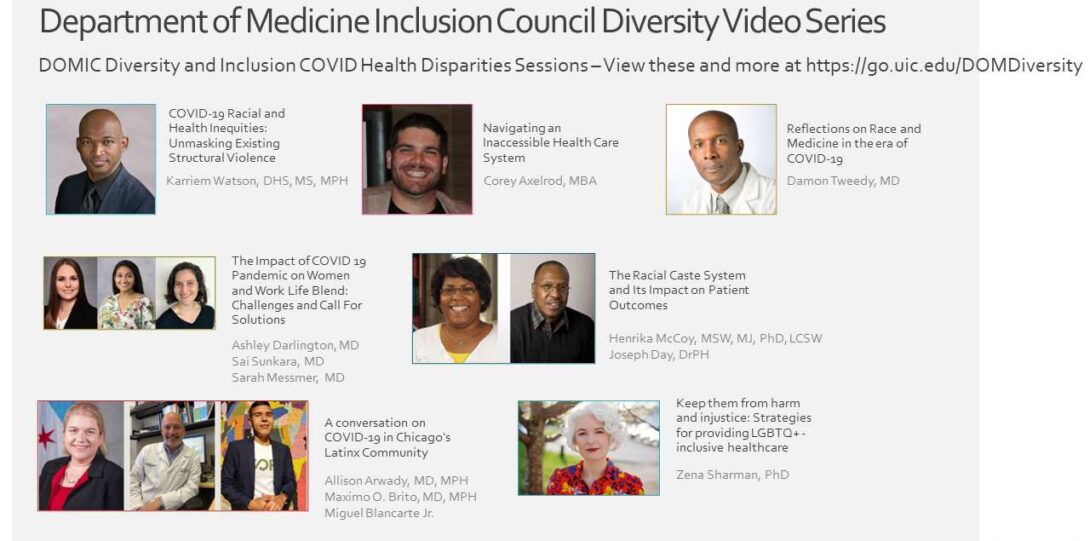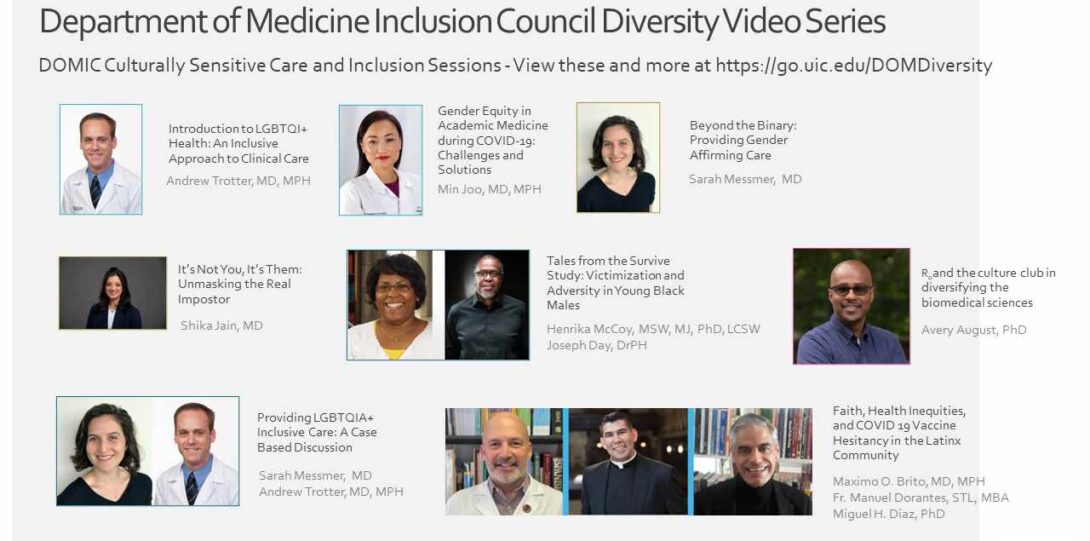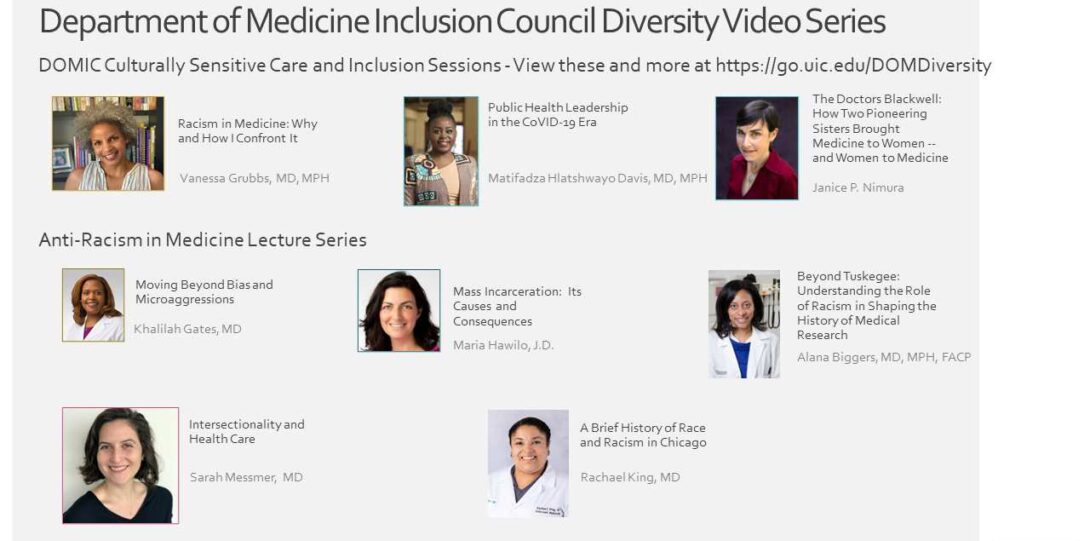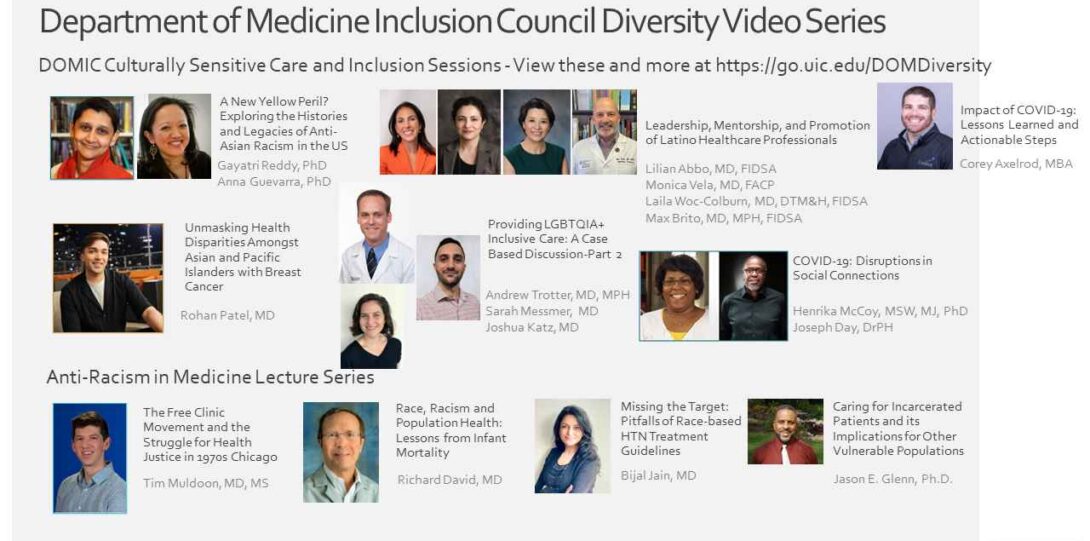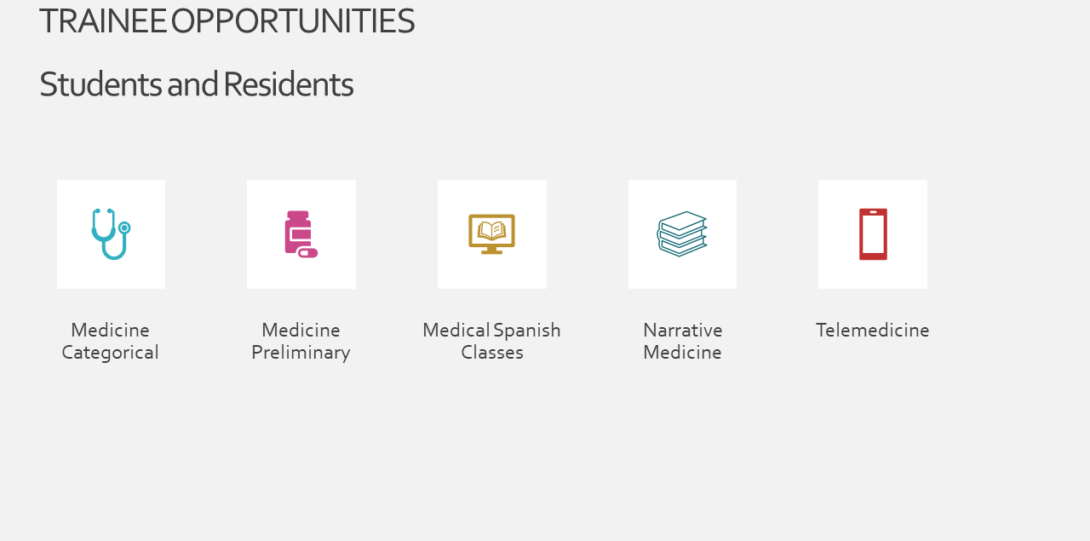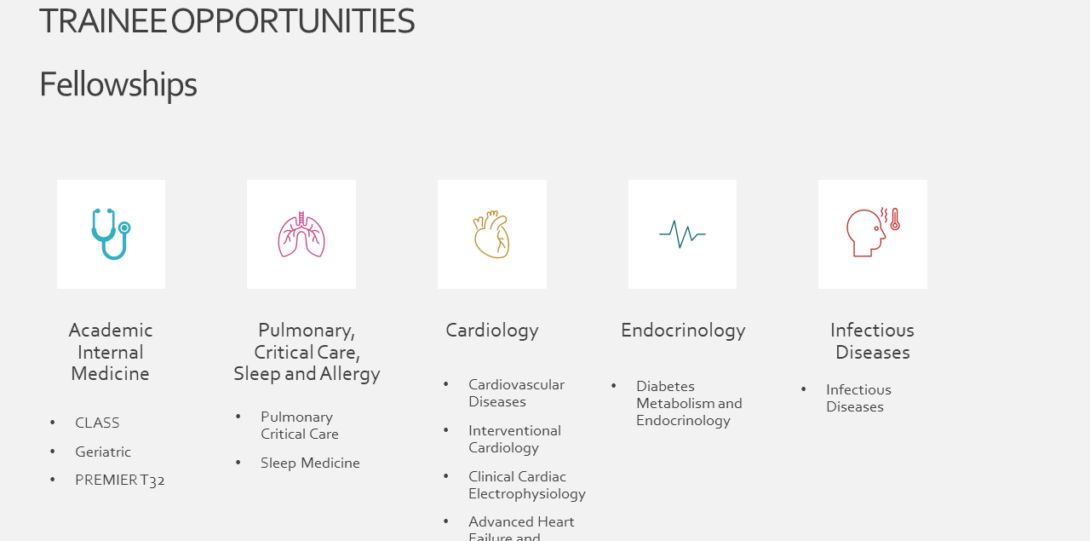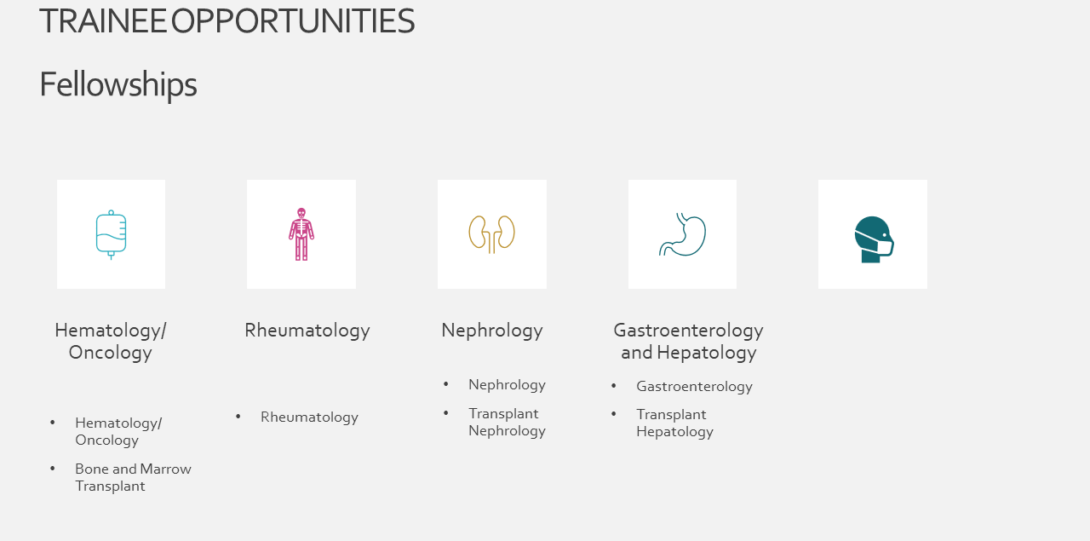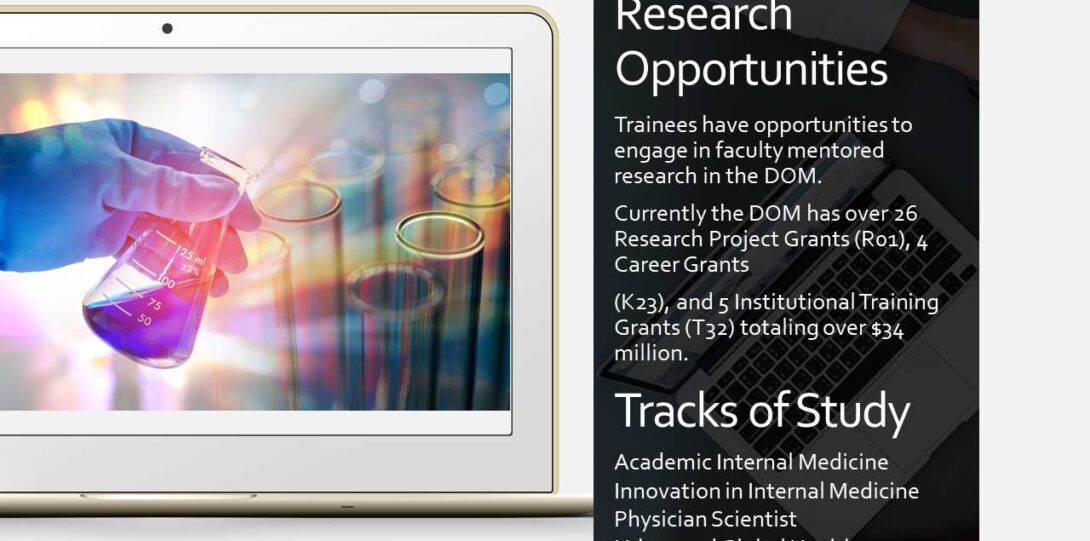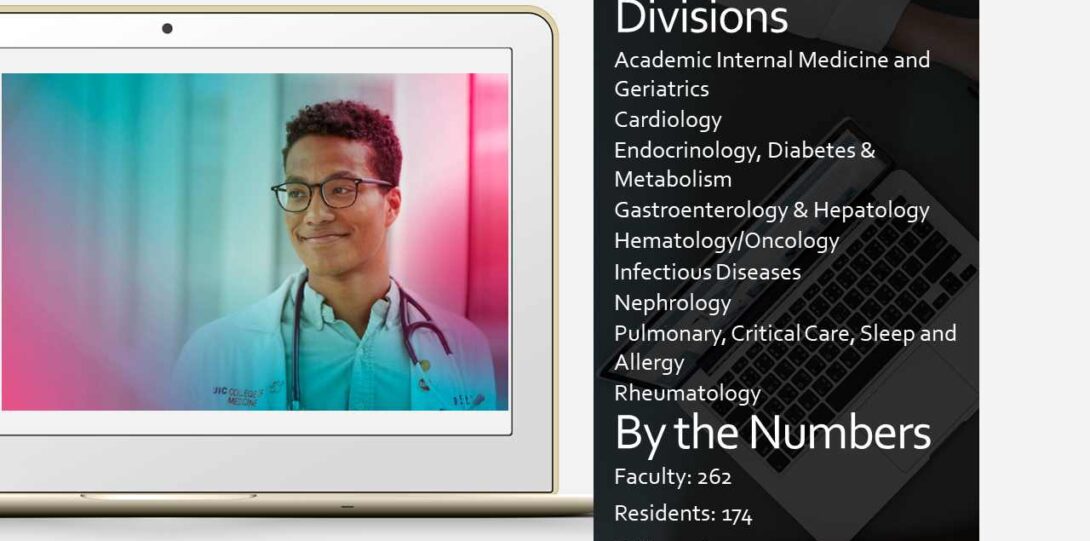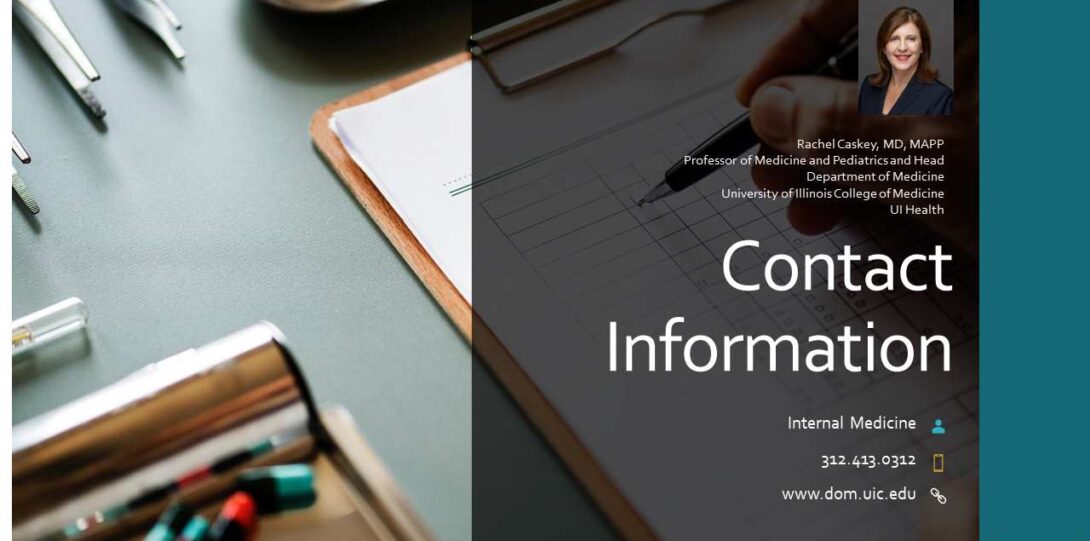Diversity and Inclusion
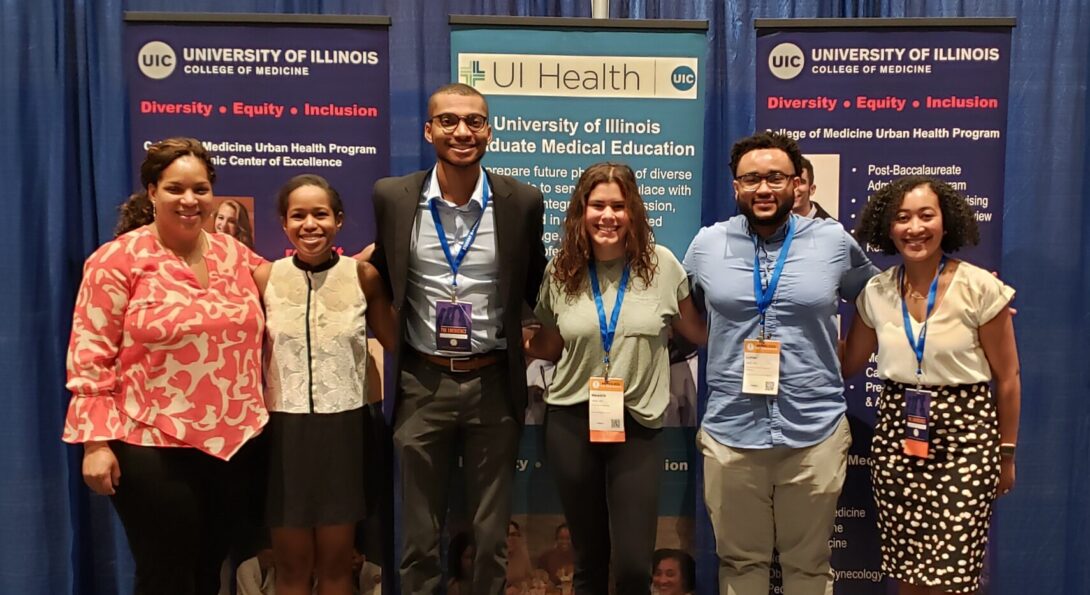
The University of Illinois Chicago’s Department of Medicine stresses that diversity drives innovation and promotes health equity. Our mission is to advance the diversity and inclusion of faculty and trainees through education, advocacy, scholarly activities, mentorship, and networking.
Celebrating Black History Month Heading link
The Department of Medicine Inclusion Council Celebrates Black History Month. We join the country in celebrating the achievements by African Americans and the central role of African Americans in U.S. history. In honoring African American culture and accomplishments, we celebrate the achievements of black physicians as trailblazers, history makers and barrier breakers.
Diversity Videos and Resources Heading link
The Department of Medicine Inclusion Council (DOMIC) plans and hosts lectures reflective of our care providers and the communities we serve. The Culturally Sensitive Care and Inclusion Series presentations continue to elevate DOMIC’s presence and provide opportunities for ongoing education, dialogue, and action around topics of diversity, health disparities, racism, women, LGBTQIA+, and more, continues to reach a broader audience. DOMIC continues its work in developing ways to engage and educate, receive feedback and implement solutions.
-
Diversity Video Series
Diversity Video Series
- Impact of COVID-19: Lessons Learned and Actionable Steps
- COVID-19: Disruptions in Social Connections
- Providing LGBTQIA+ Inclusive Care: A Case Based Discussion Part 2
- Unmasking Health Disparities Amongst Asian and Pacific Islanders with Breast Cancer
- Leadership, Mentorship, and Promotion of Latino Healthcare Professionals
- A New Yellow Peril Exploring the Histories and Legacies of Anti-Asian Racism in the US
- The Doctors Blackwell: How Two Pioneering Sisters Brought Medicine to Women — and Women to Medicine
Diversity Video Series
- Public Health Leadership in the CoVID-19 Era
- Faith, Health Inequities, and COVID 19 Vaccine Hesitancy in the Latinx Community
- Providing LGBTQIA+ Inclusive Care: A Case Based Discussion
- Tales from the Survive Study: Victimization and Adversity in Young Black Males
- It’s Not You, It’s Them: Unmasking the Real Impostor
- Gender Equity in Academic Medicine during COVID-19: Challenges and Solutions
- Beyond the Binary: Providing Gender Affirming Care
- Introduction to LGBTQI+ Health: An Inclusive Approach to Clinical Care
- Ro and the culture club in diversifying the biomedical sciences
Diversity Video Series
- Racism in Medicine: Why and How I Confront It
- Keep them from harm and injustice: Strategies for providing LGBTQ+ -inclusive healthcare
- A conversation on COVID-19 in Chicago’s Latinx Community
- The Racial Caste System and It’s Impact on Patient Outcomes
- The Impact of COVID 19 Pandemic on Women and Work Life Blend: Challenges and Call For Solutions
- Reflections on Race and Medicine in the era of COVID-19
- Navigating an Inaccessible Health Care System
- COVID-19 Racial and Health Inequities: Unmasking Existing Structural Violence
-
Resources
Diversity Resources
- African American Academic Network
- African American Cultural Center
- Asian American Resource and Cultural Center
- Disability Resource Center
- Gender and Sexuality Center
- Latin American Recruitment and Educational Services Center (LARES)
- Latino Cultural Center
- Native American Support Program
- TRIO – Academic Support Program
- Women’s Leadership and Resource Center
- CHANCE
Chancellor’s Committees
Underrepresented Faculty Recruitment Program Policy (UFRP)
UFRP is designed to encourage and assist colleges and departments at UIC in the hiring of under-represented faculty. The aim is to get a more diverse faculty, which matches the diversity of the UIC student population.
Our Initiatives Heading link
-
Urban Health Mentorship Program
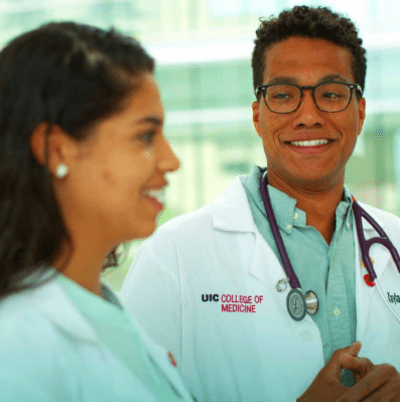
This program was started in collaboration with the Urban Health Program of the College of Medicine. First and second year medical students are paired with faculty and resident mentor. Students join the faculty and resident mentor at least once a month in clinic, hospital rounds, and/or procedure. In doing so, they are exposed to the daily practice of internal and its subspecialties. Mentors are encouraged to provide career advice and guide the student through the process of residency application. To date, more than 20 students have completed the mentoring program and several students are engaged in long-term scholarly projects with their respective mentors. We are hopeful that both the quantity and quality of underrepresented racial and ethnic minorities that we attract to the training programs at UIC will continue to increase, effectively establishing a solid pipeline of highly qualified academicians of diverse ethnicities and backgrounds.
For more information, contact diversitydom@uic.edu.
-
Internal Medicine Summer Immersion Program
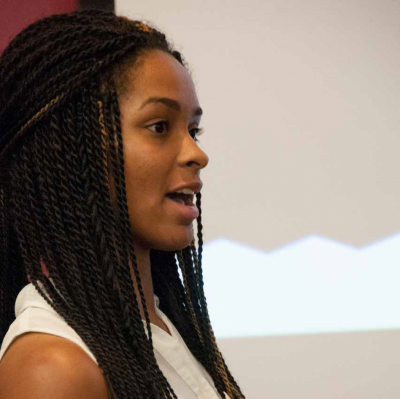
The Department of Medicine at the University of Illinois, Chicago offers a 2-week annual summer immersion program in Internal Medicine and its subspecialties and is offered to underrepresented minority (URM) medical students. During this time, students are exposed to outpatient and inpatient academic internal medicine and internal subspecialties, including allergy-immunology, cardiology, endocrinology, gastroenterology, geriatrics, hematology –oncology, infectious disease, rheumatology, nephrology, pulmonary and critical care. Students will also gain community experiences by working with faculty in the local community and nursing home sites. Additionally, students will be given the opportunity to work with research faculty to develop scholarly projects.
Program Description
- The Summer Externship Program is offered to all URM medical students at the end of their first year of medical school.
- To be considered for the program, the student completes an application and one-page letter explaining why they should be chosen.
- Students chosen for the program commit to a minimum 40-hour workweek for 2 weeks.
What does the 2 week program include?
- Exposure to clinical environments in the areas of Internal Medicine
- Development of a mentoring relationship with a teaching faculty member
- Introduction to important concepts involving the doctor/patient relationship
- Participation in a research project which may eventually lead to manuscript preparation
For more information, contact: diversitydom@uic.edu
-
Church-based Health Outreach Program (CHOP)
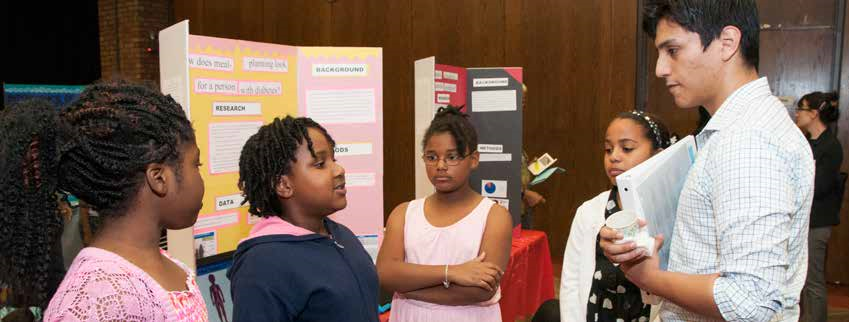
CHOP is a student run initiative led by members of the UIC’s Latino Student Medical Association (LMSA), the Student National Medical Association (SNMA), the College of Medicine Chicago Medical Student Council (CMSC), and other UIC medical students. Under the supervision of Drs. Olga Garcia-Bedoya, Brian Layden, and Claudia Lora, the medical students have worked diligently in organizing health fairs and encouraging community members to become active participants in their own health care. CHOP strives to improve health care access to undeserved communities, while also providing the opportunity for medical students to gain clinical exposure. We hope to engage students in the care of vulnerable populations and encourage patient-centered, culturally and values-based healthcare.
For more information, contact: Olga Garcia-Bedoya, MD – ogarciab@uic.edu or Claudia Lora, MD, MS – clora1@uic.edu
Make a Contribution Heading link
Persistent shortfalls in diversity at every level exist in medicine. To make lasting changes, we need your help. Your financial contribution will help us increase leadership and medical science opportunities to diverse trainees, faculty, and scientists. Our goal is to improve inequities in access to care, education, and scientific discovery. With your help, we will continue to address the gaps in every stage of academia and career development. We will champion efforts across the department of medicine for the benefit of underrepresented minorities in academia.
Giving Heading link
Coordinator Heading link
Lisa Butler
Phone:
Email:
Executive Advisory Committee Members Heading link
Executive Advisory Committee Members
Paula G. Allen-Meares, PhD
Maximo O. Brito, MD, MPH
Jorge Cavero, MD
Geri Donenberg, PhD
Ramon Garcia, MD
Executive Advisory Committee Members
Olga Garcia-Bedoya, MD
Jorge Girotti, PhD
Patrick Godwin, MD, MBA
George Kondos, MD
Fred A. Zar, MD
Inclusion Council Committee Members Heading link
Inclusion Council Committee Members
Waddah Alrefai, MD
Ashley Binder, MD
Michael Charles, MD
Cheryl Conner, MD
Tirsa Marien Ferrer Marrero, MD
James Flamm, M.Mgt.
Colin Gallagher, MD
Inclusion Council Committee Members
Anna Gramelspacher, MD, MA
Shikha Jain, MD
Rachael King, MD
Claudia Lora, MD
Ana Mauro, MD
Alfredo Mena Lora, MD, FACP
Sarah Messmer, MD
Inclusion Council Committee Members
Adam Mikolajczyk, MD, FACP
Keith Naylor, MD
Charles Peterson
Anne Polick, MD
Claire Shin, MD
Stephanie Toth-Manikowski, MD, MHS
Andrew Trotter, MD, MPH
Impact Heading link
Recruitment Activities
The DITF actively participates at national meetings of the Latino Medical Student Association: (LMSA) and the Student National Medical Association (SNMA): These organizations are the largest national meetings for students from traditionally underrepresented backgrounds. The Department of Medicine faculty serve on a continuous basis as speakers in these meetings as a way to donate resources to these organizations committed to improving the health of underserved communities through increasing the pipeline for a more diverse and inclusive medical field.
Underrepresented in Medicine (URM) residency/applicant mixers: We host mixers during recruitment season to answer questions about our program’s commitment to diversity and inclusion.
Office of Health Literacy-Cross Cultural Training
Starting in January of 2016, the UIC College of Medicine’s Office of Health Literacy, has been offering the course “Introduction to Health Disparities, Health Literacy, and Cultural Competence”. Approximately more than 200 individuals registered for the January, March and October sessions. These individuals come from 11 colleges across the university and included students, faculty, residents, fellows, and health professionals. Topics covered during the course include defining Health Disparities, Health Equity, the Social Determinants Of Health, conceptual models for the aforementioned, health disparities in managed care, the definition of and prevalence of health literacy, core ideas from health literacy research, screening, assessment, and tips for the medical encounter; definition and conceptual models for cultural competence, and strategies for becoming culturally competent and communicating with diverse populations.
Resources
- NIH Diversity Supplements
- Giving
- Upcoming events
- Resident Support Group
- Urban and Global Health Program
- Residency Tracks
- Diversity Resources
